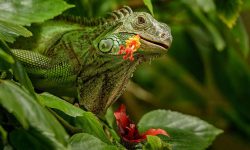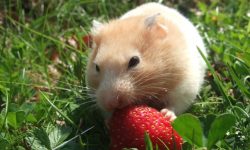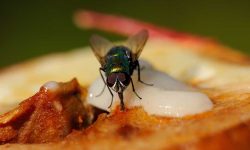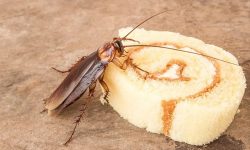Geckos are fascinating reptiles found across tropical forests, deserts, rocky cliffs and even inside human homes. Their survival depends heavily on a nutrient-rich diet that fuels their growth, supports their quick movements and maintains their vibrant coloration. Understanding what geckos eat is essential for reptile keepers, nature enthusiasts and anyone curious about the feeding behavior of these agile lizards. Whether in the wild or captivity, geckos rely on a balanced mix of insects, fruits, nectar and supplements to stay healthy.
In the wild, geckos are mostly insectivores, feeding on a wide variety of bugs they catch during nighttime hunting. Their sharp eyesight, sticky toe pads and fast reflexes make them excellent predators. But their diet varies widely by species. Some geckos eat only insects, while others—especially day geckos—enjoy fruit, nectar, pollen and sweet plant juices. Knowing the nutritional needs of each species helps ensure their long-term well-being.
This detailed guide explores 20 essential foods geckos eat, each explained in three clear paragraphs. The goal is to give a complete understanding of what keeps geckos healthy, both in nature and in captivity.
Understanding the Gecko Diet
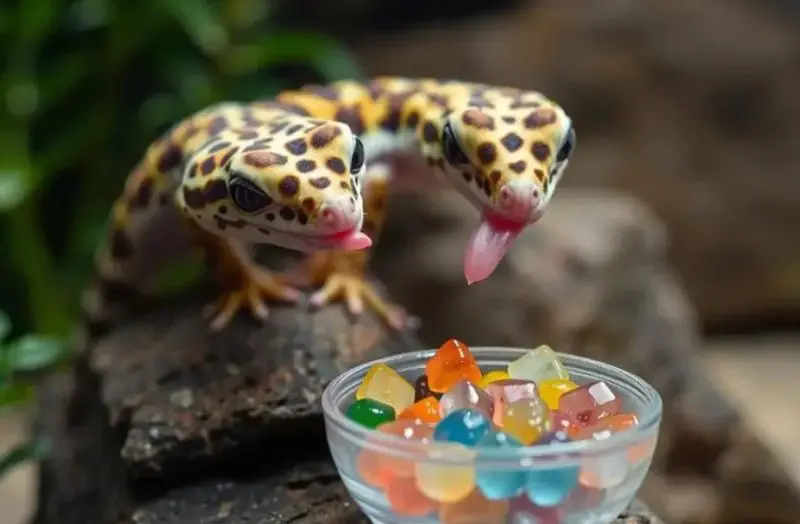
Geckos are highly adaptable reptiles, but their diet depends greatly on species, habitat and lifestyle. Insect-eating geckos, such as leopard geckos and African fat-tailed geckos, rely heavily on protein-rich insects. Arboreal geckos—like crested geckos—consume a mix of insects and fruits. Meanwhile, day geckos often feed on nectar and pollen in the wild. Knowing which category your gecko falls into helps determine the right feeding plan.
Nutritional balance is key for gecko health. They need protein for muscle growth, fat for energy, calcium for strong bones, and vitamins for proper bodily functions. In captivity, providing supplements like calcium and vitamin D3 prevents metabolic bone disease—a common issue caused by nutritional imbalance. In nature, geckos get these nutrients from varied insect diets and exposure to natural sunlight.
Geckos also hydrate differently depending on their habitat. Desert geckos absorb moisture from insects and occasional droplets, while tropical geckos lick water from leaves. Providing proper hydration ensures healthy skin shedding, energy levels and digestion. Understanding the gecko diet helps keep these reptiles thriving in any environment.
20 Essential Foods to Keep Geckos Healthy
1. Crickets
Crickets are a staple food for many gecko species. Their size, movement and protein content make them ideal prey for both wild and captive geckos. Crickets stimulate natural hunting behavior, helping geckos stay active and mentally sharp.
In captivity, crickets should be gut-loaded—fed nutritious vegetables and grains—before being offered to geckos. This enhances their nutrient value, supplying essential vitamins and minerals. Dusting crickets with calcium powder further boosts bone health.
In the wild, geckos chase crickets across forest floors, rocky areas and deserts. Their quick reflexes and powerful jaws make capturing crickets an easy task.
2. Mealworms
Mealworms provide protein and fat, making them excellent for geckos needing extra calories. They are widely used in reptile diets due to their availability and long shelf life. Mealworms also appeal to geckos because of their wriggling movement.
However, mealworms have thicker exoskeletons, which may be tougher for some geckos to digest. Offering them in moderation is ideal. Gut-loading mealworms with vegetables and grains increases their nutritional value.
In nature, geckos find mealworm-like larvae under logs, rocks and leaf litter. These larvae help geckos maintain energy levels during active foraging seasons.
3. Dubia Roaches
Dubia roaches are a superior feeder insect because they offer balanced protein, low fat and high digestibility. Many gecko keepers prefer them as a primary food source due to their nutritional profile. Their slow movement also makes them easy for geckos to catch.
Dubia roaches are safe, clean and do not climb glass, making them easier to manage in enclosures. Gut-loading them increases their vitamin content. They also contain moisture, helping with hydration.
In the wild, geckos feed on various roach species in tropical and subtropical environments. These protein-rich insects support muscle maintenance and growth.
4. Waxworms
Waxworms are high in fat, making them perfect as occasional treats rather than daily food. Their soft bodies and sweet smell make them irresistible to geckos. Waxworms help underweight or recovering geckos regain energy quickly.
Because of their high calorie content, feeding waxworms too often can lead to obesity. Offering them once or twice a week is ideal. Many keepers use them as reward treats during training or for picky eaters.
In nature, waxworm-like larvae appear in bee hives or decaying wood, providing a rich but occasional meal for wild geckos.
5. Superworms
Superworms are larger and more active than mealworms, making them engaging prey. Their movement stimulates hunting behaviors in geckos, keeping them physically active during feeding sessions. They offer a good balance of protein and fat.
Like mealworms, superworms should be fed in moderation because of their thicker exoskeleton. Cutting off the head before feeding can help prevent internal biting issues in some species. Gut-loading increases their nutritional value significantly.
In the wild, geckos encounter similar beetle larvae in forest floors, helping them stay nourished during growth periods.
6. Fruit Flies
Fruit flies are ideal for baby geckos and small gecko species. Their tiny size and soft bodies make them easy to digest. Fruit flies also mimic natural prey found in tropical environments.
They are commonly used in breeding setups for hatchlings. Because of their rapid reproduction, fruit flies remain available for continuous feeding. Geckos enjoy hunting them in open enclosures.
In nature, geckos catch fruit flies around rotting fruit, sap and tropical foliage. These small insects contribute to the early diet of juvenile geckos.
7. Silkworms
Silkworms are highly nutritious, offering lean protein, calcium and essential amino acids. They are soft, easy to digest and suitable for geckos of all ages. Silkworms support healthy skin, growth and immune function.
They also contain a natural enzyme that benefits skin shedding. This makes them ideal feeders for geckos prone to stuck shed issues. Silkworms are low in fat, reducing obesity risks.
Wild geckos may occasionally encounter silkworm-like larvae feeding on mulberry leaves in humid regions.
8. Hornworms
Hornworms are moisture-rich, making them excellent for hydration. Their bright color and soft texture attract even picky geckos. They contain beneficial nutrients that support digestion and overall health.
Because hornworms grow quickly, they are best fed while small or mid-sized. Overly large hornworms may overwhelm smaller geckos. Their moisture content helps with shedding and gut function.
In natural settings, geckos eat caterpillars similar to hornworms on desert plants and shrubs.
9. Houseflies
Houseflies stimulate natural hunting instincts in geckos due to their flight movement. They are safe and high in protein, offering mental stimulation during feeding. Geckos enjoy the challenge of capturing them.
Flies should be captive-bred to avoid pesticide contamination. Their small size makes them suitable for active, agile gecko species. Feeding flies encourages geckos to use their natural climbing skills.
In the wild, geckos often catch flies near lights, windows or decaying material where flies gather.
10. Moths
Moths are soft-bodied, nutritious insects that geckos eagerly hunt. Their fluttering motion activates geckos’ predatory instincts. Moths provide moisture and protein, making them ideal nighttime prey.
In captivity, moths should be offered from clean environments to avoid toxins. Their size varies, so choose moths appropriately for the gecko’s size. They add variety to the diet, reducing boredom.
Wild geckos catch moths near lights, flowers and tree bark during nighttime hunting.
11. Beetle Larvae
Beetle larvae provide high levels of protein and fat. Their worm-like shape appeals to geckos and mimics many natural prey species. Larvae support rapid growth and weight gain.
However, large larvae should be fed sparingly because of high fat content. Their soft bodies make them easy for geckos to digest. Dusting them with calcium ensures balanced nutrition.
In the wild, geckos encounter larvae under rocks, logs and loose soil where insects breed.
12. Nectar
Some gecko species, such as day geckos and crested geckos, consume nectar as part of their natural diet. Nectar provides natural sugars, hydration and plant-based nutrients. It helps support energy levels and encourages natural licking behavior.
Commercial nectar mixtures are available for captive geckos. These blends replicate natural nectar while adding vitamins and minerals. They are easy to prepare and safe for regular feeding.
In tropical forests, geckos lick nectar from flowers, fruits and sap wells created by insects.
13. Fruit Purees
Fruit purees are ideal for fruit-eating gecko species. Mango, papaya, banana and peach provide vitamins, antioxidants and moisture. They mimic natural fruit sources found in tropical habitats.
Purees should be offered in small portions to avoid excess sugar. Mixing fruit with commercial gecko diet powders improves nutritional balance. Many geckos enjoy licking purees as part of enrichment feeding.
In the wild, geckos consume fallen fruit or bite into soft tropical fruits when available.
14. Insect Gel Foods
Insect gel foods provide moisture, protein and safe hydration. These gels are convenient for geckos that struggle with dry diets. They also supply vitamins and amino acids necessary for growth.
Gel foods reduce the risk of dehydration in captive setups. They are especially useful in dry climates or desert enclosures. Many geckos quickly adapt to licking gel from bowls.
In nature, geckos obtain similar nutrients from insect fluids, plant sap and dew.
15. Reptile Commercial Diets
Modern reptile diets designed for geckos provide balanced nutrition. These diets combine fruits, proteins, vitamins and minerals tailored to species needs. They reduce the guesswork of maintaining proper nutrition.
Wet and dry formulas are available for crested and day geckos. They mimic natural feeding behaviors while offering consistent nutrient profiles. Many gecko owners use these diets as the foundation of daily feeding.
Wild geckos, of course, do not eat commercial diets, but these products safely replicate their mixed natural diets.
16. Pollen
Certain gecko species, especially day geckos, consume pollen in the wild. Pollen provides protein, antioxidants and plant-based nutrients. Its fine texture makes it easy for geckos to lick and digest.
In captivity, pollen can be sprinkled on fruit mixes or commercial diets for added nutrition. It supports immune health and energy levels. Pollen also encourages natural foraging behavior.
In tropical ecosystems, geckos collect pollen while feeding on nectar and flowers.
17. Earthworms
Earthworms provide moisture-rich protein that supports hydration and digestion. They are soft and highly digestible, making them suitable for many gecko species. Earthworms offer essential nutrients often missing from insect-only diets.
They should be rinsed thoroughly before feeding to remove soil. Cutting them into small pieces helps smaller geckos consume them safely. Their natural movement encourages hunting.
In the wild, geckos occasionally find worms during rainy seasons or near moist soil beds.
18. Isopods
Isopods (also called pill bugs) provide calcium and protein. They support gut health by offering roughage that aids digestion. Many geckos enjoy hunting them due to their rolling motion.
Bioactive enclosures use isopods as clean-up crews, and geckos sometimes eat them naturally. Captive-bred isopods are safest for feeding. They supplement mineral intake effectively.
In nature, geckos encounter isopods under logs, stones and decaying plant matter.
19. Small Spiders
Geckos naturally hunt spiders in the wild. Spiders provide protein, hydration and natural prey enrichment. Their movement encourages geckos to use their agility and climbing abilities.
In captivity, spiders should only be offered from safe, chemical-free environments. They should be appropriately sized to prevent injury. Spiders help add variety to an insect-heavy diet.
Wild geckos often hunt spiders near walls, rocks and foliage during nocturnal foraging.
20. Calcium Supplements
Calcium supplements are not “foods” but are essential for gecko health. They prevent metabolic bone disease, support strong bones and assist muscle function. Dusting insects with calcium ensures balanced nutrition.
Geckos also benefit from calcium with vitamin D3, especially indoor reptiles without UVB lighting. Providing a small dish of calcium powder allows geckos to self-regulate their intake.
In the wild, geckos obtain calcium from varied insect diets and natural sun exposure.
FAQs About What Do Geckos Eat
What do geckos eat most often?
They primarily eat insects like crickets, roaches, worms and flies.
Can geckos eat fruit?
Yes, but only certain species such as crested and day geckos.
Do geckos need supplements?
Yes. Calcium and vitamin D3 are essential for strong bones.
Do geckos drink water?
They lick droplets from leaves or enclosure surfaces.
Can geckos eat vegetables?
Most geckos do not digest vegetables well.
What insects are best for geckos?
Crickets, dubia roaches, mealworms and silkworms.
Can geckos eat human food?
No. Human foods can harm their digestion.
How often should geckos eat?
Young geckos eat daily; adults eat every 2–3 days.
Do geckos eat at night?
Most species feed at night, especially insect-eating geckos.
What foods should be avoided?
Fireflies, insects caught outdoors and anything toxic or seasoned.
Final Thoughts
Geckos thrive on a diverse, nutrient-rich diet that includes insects, fruit mixes, nectar and essential supplements. Understanding what geckos eat allows keepers and enthusiasts to support long-term health, strong bones, proper shedding and active behavior. By offering safe, balanced foods and mimicking natural feeding habits, you can help your gecko live a vibrant and healthy life. Whether caring for a pet or observing wild geckos, their diet reveals just how adaptable and fascinating these reptiles truly are.


